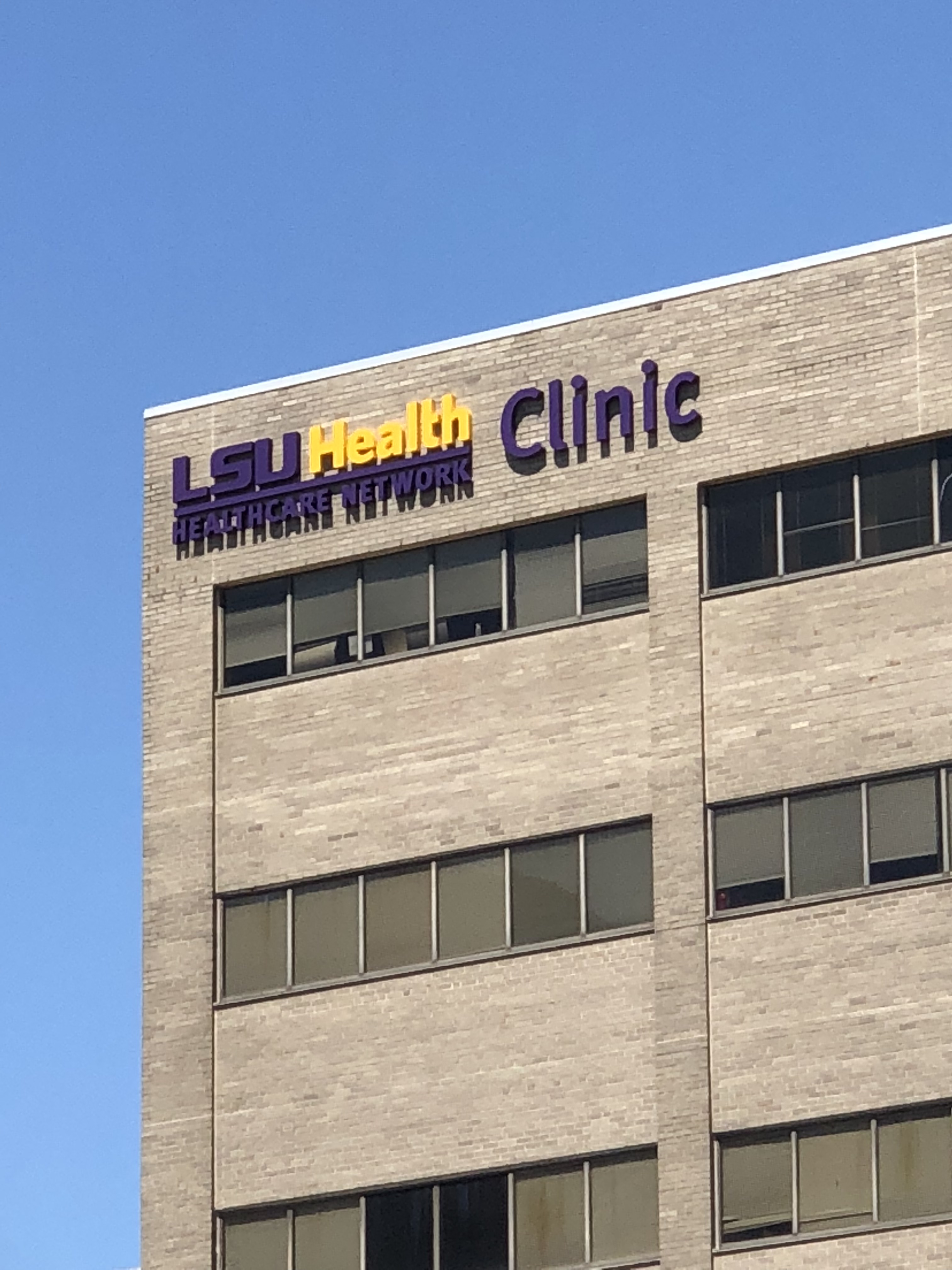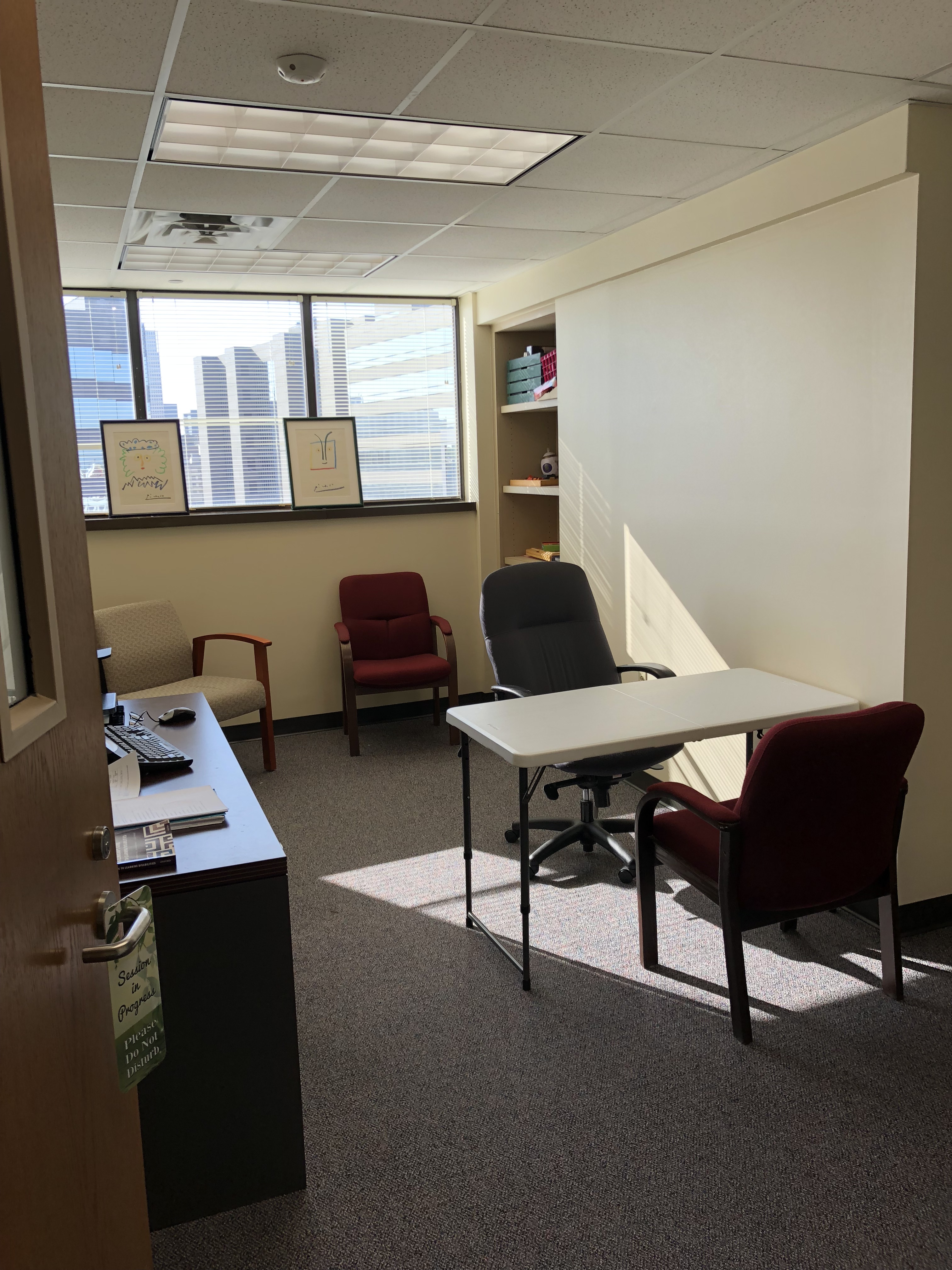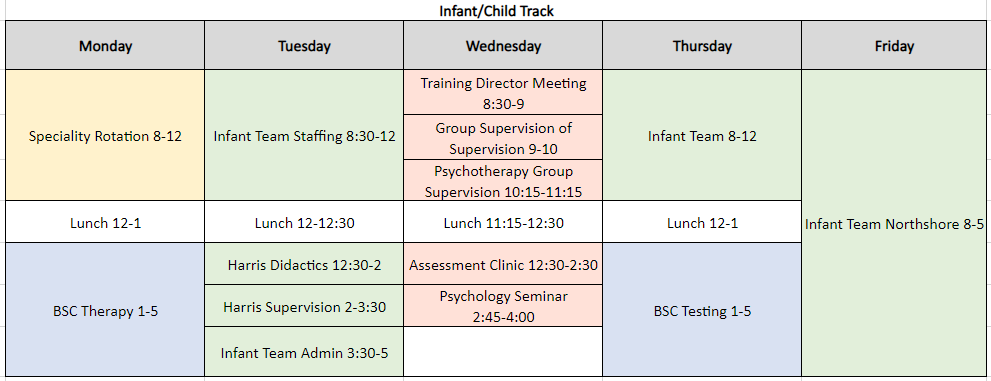INFANT/CHILD TRACK
(2 POSITIONS)
Overview
The major influence on the Infant/Child track is working with young children through the Infant Team (see Infant Team tab below for more details) and Harris Infant Mental Health Program (see Harris Infant Mental Health program tab for more details). As part of the Infant Team, the intern meets weekly with a multidisciplinary team and completes relationship-based forensic evaluations and treatment with infants, toddlers and their caregivers for the Baby Court. The Harris Infant Mental Health Program provides the intern with a weekly seminar and supervision series to learn about young children and their caregivers. Children ages 0-5 are referred for child-parent psychotherapy through the Harris Program. Additional child and adolescent outpatient therapy and assessment cases are conducted through the LSU Behavioral Sciences Center. The types of cases which are referred to the BSC vary greatly but may include referrals for: ADHD, behavior management, parent/child attachment, social deficits, learning difficulties, etc. Interns are also expected to carry a caseload of one to two psychological testing cases consistently over the course of the training year. Interns meet weekly for three hours of individual supervision as well as several hours a week of group supervision and case staffing.
Below is a sample schedule for an intern on the infant/child track.
Seminars & Supervision
Harris Infant Mental Health Center Didactics:
Interns participate in a two hour weekly seminar where they are taught theoretical
aspects of infant development, the parent-caregiver relationship, and evaluation and
therapeutic techniques when working with this population. The seminar will also incorporate
video presentation of clinical evaluations and treatment for discussion by the group.
Assessment Group Supervision:
This weekly case staffing seminar allows all interns to formally present assessment
cases of infants, children, adolescents, and adults evaluated through the outpatient
clinics. Fundamentals of psychological assessment including test administration, selection
of testing instruments, collection of collateral reports, integration of testing data,
report writing, recommendations for feedback sessions, etc. will be discussed throughout
the year. Integration of test data, history, and DSM 5 diagnostic criteria will be
emphasized with particular attention placed on differential diagnosis. More advanced
levels of diagnostic and treatment issues with various populations are also presented
(e.g., the borderline conditions, the spectrum of narcissistic disorders, and the
spectrum of depressive disorders).
Psychology Seminar:
This weekly seminar discussion session consists of various special topics in clinical
psychology, ethical decision-making, and professional development as a psychologist.
Multidisciplinary core faculty and outside lecturers (e.g. psychologists, psychiatrists and
social workers) discuss a variety of issues including juvenile violence, licensing
issues, cultural diversity, financial issues following graduation, psychopharmacology and
challenging treatment issues. If available, additional topics may be included at the
request of the current intern class. The early part of the year will focus on covering
Louisiana laws related to the practice of psychology, suicide/homicide assessment,
and child/elder abuse reporting. There are also quarterly seminars related to supervision
and multicultural awareness as well. In addition, each psychology intern is required
to make a formal presentation/job talk on a topic or issue of their choice prior to
the end of the training year.
Psychotherapy Group Supervision:
This unique, year-long supervision involves presentations of therapy cases seen at the various training settings. Psychology interns formally present cases which are then discussed as a group. The focus of the discussion is on deepening case conceptualization, understanding the cultural formulation of the case, discussing transference and countertransference that may arise in the treatment, and brainstorming other potential therapeutic techniques that could be beneficial to the individual case. Interns are welcome to bring videos from session to enhance discussion about psychotherapy cases.
Group Supervision of Supervision:
This group meets weekly and is intended to focus on the intern's development of their
own supervision skills as a necessary part of their professional development as psychologists.
Interns are encouraged to bring issues that arise during supervision sessions as well
as their successes from their experiences in the role as supervisor to process with
the group.
Child and Adolescent Treatment Team (ChATT):
Interns will meet with psychiatry faculty and fellows for a monthly treatment team
meeting to discuss challenging cases, provide consultation to respective disciplines
and collaborate on shared cases at the BSC.
Other Educational Opportunities:
While on the primary rotations, interns will be required to attend inservice and other training activities, which are germane to their functioning as members of the multidisciplinary team.
Psychiatry Grand Rounds, including case conferences, are held at LSUHSC three times per month. Departmental, local, national, and international experts give presentations on diagnostic and treatment issues, biological psychiatry, epidemiological findings, socio-political issues, theoretical developments, and philosophical issues in clinical psychiatry. Interns also have an open invitation to attend lectures offered by the New Orleans-Birmingham Psychoanalytic Center.
New Orleans is a popular city for continuing education programs and conventions. In the last several years the American Psychological Association, National Training Institute: Zero to Three, the Society for Research in Child Development, the Society for Personality Assessment, the International Neuropsychological Association, the American Academy of Child and Adolescent Psychiatry, and the Louisiana Psychological Association have held their annual conventions in New Orleans.
Harris Program
A major objective of the Harris Program for Infant Mental Health in New Orleans, and
of infant mental health training in general, is to raise awareness that even very
young infants can have mental health problems and that early identification, intervention,
and prevention can have a significant positive impact on their lives and those of
their families. The goals of our program are: 1) to develop a critical number of people
locally and regionally who are trained to evaluate and treat infants; 2) to develop
networks -local, regional, national, and international - to provide support for individuals
working with infants; 3) to bring together individuals from different mental health
disciplines who will have a core set of skills and knowledge to assess and treat infants;
and 4) to develop particular expertise in evaluation and treatment for infants and
families at high psychosocial risk. Training activities include didactic seminars,
clinical case seminars, and intensive clinical supervision by senior infant mental
health professionals. Often networking efforts link many other systems including the
judicial system, child welfare, law enforcement, schools, community centers, day care
and early intervention programs where training and consultation is provided.
Infant Team
The Infant Team is contracted by the Orleans Parish and St. Tammany Parish Departments of Children and Family Services (DCFS) to complete assessments of children aged 5 years old and under in foster care with any potential caregivers of those children. The results of these assessments are reported in writing to DCFS along with recommendations regarding the best interest of the child. Included in these recommendations are any needed developmental, psychological or psychiatric referrals, therapeutic interventions, as well as recommendations about the child's placements and changes in visitations. Generally, therapeutic services are offered to the biological parent(s) to address those issues which brought the child into foster care. Where indicated, therapy may be offered to other potential or actual caregivers to assist in promoting an emotionally supportive and beneficial relationship with the child. Most therapy is done dyadically, with the caregiver and child together. There are times when the Team recommends individual therapy for either the caregiver or the child as well. The progress of therapy is documented in quarterly reports to DCFS who forwards these to the Orleans or St. Tammany Parish Juvenile Court. These are included in considerations by the Court with regard to decisions about reunification versus termination of parental rights, and to the child's permanency plan. At times, the Infant Team primary clinician may be subpoenaed to Court as a fact or expert witness to testify in greater detail about the Team's findings. Team members also meet regularly to staff the cases with DCFS workers; various attorneys for the child, parent and DCFS; and other professionals working on the case in order to best help the child and family.
Every year the Infant Team welcomes two psychology interns for training in this important
and valued work. Interns are given two to three cases to follow for the year and are
closely supervised. They attend staffings on Tuesdays from 8:30am - 11:00am during
which the faculty and interns discuss current cases, review tapes of assessments or
therapy and come to a consensus on recommendations regarding each case. They attend
monthly meetings with DCFS to staff cases and complete monthly forensic reports. The
interns take the role of primary clinician on their case, working directly with the DCFS
case worker assigned to the case, doing all assessments, maintaining a chart on the
client(s) and producing written quarterly reports. The intern may be subpoenaed to
testify as a witness. If this occurs they are well-prepared by DCFS's attorneys and
by the faculty members of the Infant Team. Should expert testimony be needed, the
intern's direct supervisor would be called in to do so. The year follows the academic
model and so begins July 1 and ends June 30.
Additional information about our Infant Team.
OUTPATIENT EXPERIENCE
Behavioral Sciences Center (BSC) Outpatient Psychotherapy and Assessment Clinic
The Behavioral Sciences Center is located in the Campus Multi-Specialty Clinic on
the 7th Floor at 278 S. Johnson St., New Orleans, in close proximity to the other
major training sites. Since 2008, the Behavioral Sciences Center has become the primary
outpatient clinic for the entire department, and its various trainees of all disciplines.
This clinic is operated by the Department of Psychiatry to provide training experience
in outpatient mental health services for psychology interns, psychiatry residents,
and social work interns. Referrals to the clinic come from both the public and private
sectors, including private practitioners in the community, pediatric clinics at the
Medical Center of Louisiana and Children's Hospital, University Medical Center, community
mental health centers, and local schools and universities. Supervision is provided
by the full-time faculty psychologists and by several part-time clinical faculty who
are engaged in clinical practice within the community. A variety of theoretical orientations
are represented by our supervisors. Infant/Child Track psychology interns see infant
and child patients at the BSC where they perform intake evaluations, individual psychotherapy,
child-parent psychotherapy, play therapy, family therapy, and parent training. The
clients range in age from one to 17 years.
The BSC also provides interns with more specialized training and experience assessing
patients of all ages referred for a variety of psychiatric, medical, and behavioral
issues. Psychological/cognitive issues including learning problems, ADHD, depression,
anger, anxiety, and memory/cognitive disorders are routinely assessed in the assessment
battery which includes the WPPSI/WISC/WAIS, Woodcock-Johnson Tests of Achievement,
Trail Making Test, Achenbach Scales, PAI/MMPI, and IVA+ to name a few.
A customized approach is used by the clinician, with the assistance of their clinical
supervisor, as indicated by the referral question. Services are available for individuals
ages 1 month to 89 years. The psychology intern receives supervision from a licensed
psychologist on the core faculty. In addition, all interns attend a weekly Assessment
Group Supervision to formally present and discuss cases assessed through their outpatient
clinics. All Interns are required to carry an active outpatient assessment case at
all times throughout the training year with adjustments made to the caseload depending
on complexity of cases assigned (average 1-2 per month). The majority of services
completed through the BSC are conducted in two sessions (up to 8 hours total) with
additional sessions scheduled as needed. Results with appropriate recommendations
are provided in 60-minute feedback session appointments within a month of completion
of all aspects of testing including collection of collateral reports from caregivers,
teachers, etc.



